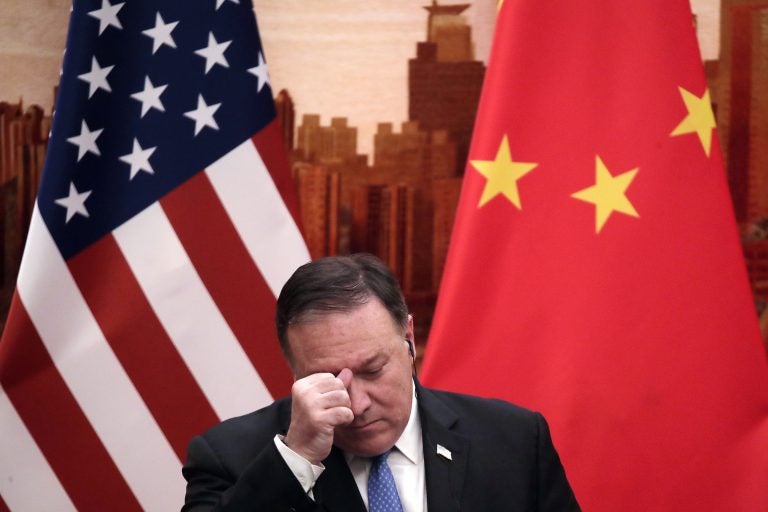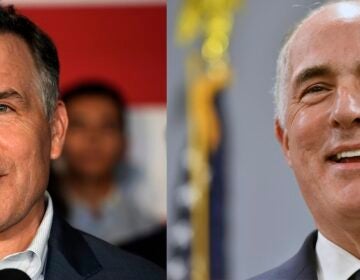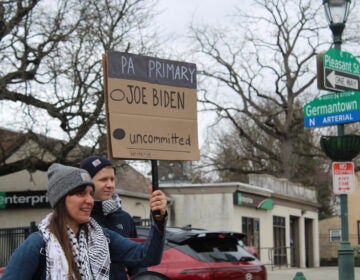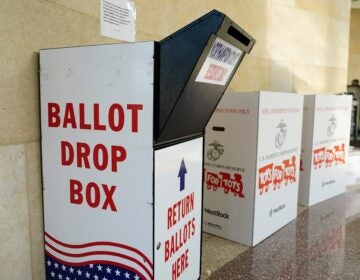Trump’s Secretary of State says it’s ‘insulting’ and ‘ludicrous’ for the press to ask legitimate questions

U.S. Secretary of State Mike Pompeo rubs his forehead during a joint press conference with Chinese Foreign Minister Wang Yi at the Great Hall of the People in Beijing, Thursday, June 14, 2018. (Andy Wong/AP Photo)
The free American press has every right to ask the Trump regime how it expects to verify that North Korea is downsizing its nuclear program — especially since there isn’t a syllable in the summit agreement about verification. But Trump’s Secretary of State doesn’t think the free American press has the right to ask.
What happened yesterday, during a press conference with Mike Pompeo, was the Trump regime in a nutshell. If only the free American press would comport itself like its North Korean counterparts, if only it would cease trying to hold Trump accountable, if only it would agree to treat Trump like a supreme leader in the style of Kim Jong Un, then everything would be fine and Pompeo wouldn’t feel compelled to flip his lid.
But alas, it was not to be. Legitimate questions needed to be asked. The signed document, less than 400 words in length, says nothing about how America will verify denuclearization. The Obama administration spent years crafting a verification process for Iran, the Reagan administration spent years crafting a verification process for the Soviet Union (remember Reagan’s credo, “Trust but verify”?), yet this crew appears to be winging it, vowing to come up with some kind of process some time down the road, and reducing Reagan’s credo to the word “Trust.”
Past American communiques with North Korea have stated that any denuclearization should be “verifiable and irreversible.” Pompeo has verbally echoed that language. But there is no such language in Trump’s signed document. So the press asked Pompeo about that, and that’s when he got mad. How dare the press ask such questions!
Q: Mr. Secretary, I wanted to ask you about “verifiable and irreversible.”
Pompeo: Mm-hmm.
Q: You said — the day before you said it’s our only objective, our — it’s clear we want that. It’s not in the statement. Why it’s not in the statement? And the president said it will —
Pompeo: Mm-hmm, it’s in the statement. It’s in the statement. You’re just wrong about that.
Q: How is it in the statement? And I am also —
Pompeo: You’re just — because “complete” encompasses verifiable and irreversible. It just — I suppose we — you could argue semantics, but let me assure you that it’s in the document.
Q: And the president said it will be verified.
Pompeo: Of course it will.
Q: Can you tell us a little bit more about —
Pompeo: Of course it will. I mean —
Q: — about how?
Pompeo: Just so you know, you could ask me this — I find that question insulting and ridiculous and, frankly, ludicrous. I just have to be honest with you. It’s a game and one ought not play games with serious matters like this.
Q: But how will it be verified? Did you discuss that? Do you have —
Pompeo: Oh, we’re — they’re — the modalities are beginning to develop. There’ll be a great deal of work to do. It’s — there’ s a long way to go, there’s much to think about, but don’t say silly things. No, don’t, don’t. It’s not productive. It’s not productive to do that, to say silly things. It’s just — it’s unhelpful.
Q: Well, I think —
Pompeo: It’s unhelpful for your readers, your listeners, for the world. It’s — because it doesn’t remotely reflect the American position or the understandings that the North Koreans have either.
Q: We’re just trying to understand how it reflects what you asked that —
Pompeo: Yeah, and I just articulated that for you.
First of all, it’s not “insulting and ridiculous and ludicrous” for the press to ask reasonable questions about a document, signed by Kim, that says nothing about how America would hold Kim accountable. Elsewhere in the press conference, Pompeo said there are “understandings,” but “we couldn’t reduce them to writing.” Rest assured that if President Obama had ever staged a photo-op with Kim, and had punted all verification provisions by claiming that “we couldn’t reduce them to writing,” Republicans like Pompeo (in his former incarnation as a congressman) would’ve melted down on Fox News.
But Trump cultists don’t like to be questioned. Some people in a democracy are so insufficiently worshipful.
It just so happens that experienced people outside the press corps are also asking about the dearth of verification. John McLaughlin, a former deputy CIA director who served presidents of both parties, points out that Kim in the past has reneged on de-nuke promises even when verification experts were on the scene:
“At different times in its nuclear history, North Korea has … hosted on-site inspectors from the International Atomic Energy Agency. For example, in 2008, Pyongyang went so far as to specify in Six Party Talks (North and South Korea, the U.S., China, Russia and Japan) 15 nuclear sites, 30 kilograms of plutonium, and said it had used two kilograms in its 2006 nuclear test. This was to lead to denuclearization but, tellingly, the whole thing broke down over disagreement on how the international community would verify compliance.
“If a verification agreement could not be achieved on such a small program, it’s hard to imagine one can be devised for today’s more advanced one. And the bar for Trump needs to be especially high because of his condemnation of the Iranian verification process, which is far more intrusive than anything the North Koreans have ever experienced.”
Is Trump even remotely prepared to answer questions about stuff like that? Nope. As McLaughlin wisely points out, “Trump, who seems to live mostly in the moment … may simply have been seduced by the prospect of a great TV moment … And he will spin that like a carnival barker in the coming days.”
But wait, isn’t it wrong to ballyhoo such a skeletal agreement? Somebody once tweeted: “The reason great dealmakers do not OPENLY celebrate a deal, especially one that is not complete, is that it shows weakness to the other side.”
So said Trump, in November 2013. (There’s a Trump tweet for every occasion.)
But I suppose it’s “insulting and ridiculous and ludicrous” to ask him to reconcile what he said then with what he’s doing now.
WHYY is your source for fact-based, in-depth journalism and information. As a nonprofit organization, we rely on financial support from readers like you. Please give today.




